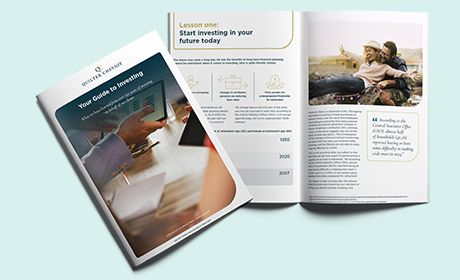Understanding investment risk
Obtaining an investment return higher than cash deposits will involve taking risk. To meet your longer-term objectives, you may have to be prepared to take on a higher level of risk than you have historically. Risks associated with investments can take various forms, including:
- The sensitivity of your investments to market events or economic factors, including changes to interest rates and inflation
- The possibility that your investments do not meet your objective, such as a specific amount for targeted future expenditure
- The chance of irregular or unusual investment returns, particularly in times of economic crisis
- The likelihood of temporary or permanent loss of capital or income
- The possible lack of liquidity, meaning that in certain market circumstances, it might not be possible to sell a particular investment
The concept of taking risk in order to see your money grow and deliver a return is fundamental to the principle of investing. The general rule of thumb is that the more risk you take, the greater the potential return – but also the greater the potential loss. Investors need to consider how much of their initial investment they can afford to lose, and then set a limit on this.
Active Management
In an actively managed portfolio, your Investment Manager will monitor the investments held to take advantage of long-term investment opportunities, and to keep the investments aligned to their stated risk profile. Shorter term tactical adjustments may be made from time to time to manage risk and return, as well as to take advantage of market opportunities as they arise.
Ensuring your investments lose the least amount possible in value during a downturn
Our long-term experience of investment markets has shown the importance of diversification (holding a wide range of assets). This helps to reduce the impact of a market downturn, as this will affect the value of asset types differently. In a market downturn, important factors to consider include:
- Getting the right balance of risk and reward. While losing the least amount possible can feel desirable, if this means a shift into lower risk investments then you may end up with lower investment growth over the longer-term. Your Investment Manager can help you work through what level of risk you are comfortable with to build your wealth.
- Focus on your long-term investment plan. It’s important to be objective and think rationally about managing your investments for the long-term, rather than any short-term movements which could be driven by our emotions. Our Investment Managers are focused on the long-term direction of the market and what it means for your investments.
Your Guide to Investing
If you want to learn more about investing, please read our full guide.
